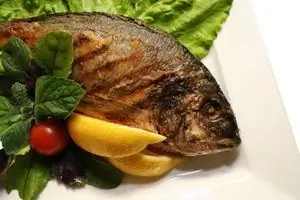2025 Author: Jasmine Walkman | [email protected]. Last modified: 2025-01-23 10:18
Nutrition is important for the heart and blood vessels. It can affect both your heart attack recovery and your health after you have had this condition.
While some people after a heart attack must strictly follow the recommendations for a healthy diet, others can eat whatever they want. Whichever group you belong to, choosing a healthy diet will significantly reduce the risks of having another heart attack.
Diet is very important after a heart attack, as well as for the prevention of a second one. In addition to exercise, maintaining an optimal body weight, avoiding smoking and alcohol, proper nutrition has a beneficial effect after a heart attack. Avoid foods that contain saturated fat, salt, sugar and cholesterol.
Limit the amount of sodium you get from food and drink. The daily amount should be from 1500 to 3000 mg depending on the recommendations of your doctor. Add less salt to your meals.
If you eat in a restaurant, read the menu carefully or ask the waiter about the presence of salt in any of your chosen foods. Avoid saturated and trans fats, as they raise LDL (or so-called bad) cholesterol. They are found in foods of animal origin, as well as in foods made with hydrogenated oils, mostly processed foods such as chips, pickles and more.

Replace them with foods that contain beneficial unsaturated fats such as olive oil, canola oil, avocado and more. They increase your HDL (so-called good) cholesterol and help you avoid further heart disease. In general, you can lower cholesterol levels by avoiding the consumption of egg yolks, fatty oils, shrimp, high-fat milk and more.
Include in your diet cereals, wholemeal bread, brown rice and more. Eat large amounts of fresh or frozen vegetables and fruits, as they are rich in vitamins and minerals and are low in sodium and fat. Drink only low-fat milk, when choosing meat, choose only those that have no visible fat.
When cooking poultry, remove the skin beforehand, because it is composed mainly of fat. Try to eat fish at least once or twice a week, it contains useful omega-3 fatty acids that can protect you from re-encountering a heart attack.
Avoid pickles and pickles, which are high in sodium and fat. Exclude from your diet salty snacks, chips, foods containing soy sauce, as well as canned and dried soups, unless the package says that the product is low in sodium.
Recommended:
Pomegranate Protects The Heart From Heart Attack

Pomegranate is on that list of fruits, the consumption of which significantly improves our health. The fruit has the shape of an apple, but inside it is completely different. It has a thin shell, under which are hidden juicy seeds with a ruby red color, which have a beneficial effect on health.
Diet After A Heart Attack

You return home after a heart attack and of course you are facing the stage in which you will have to recover. If you have recently experienced this unpleasant thing, your life has already begun to change and you will need to make many more changes to feel healthy again and reduce the risk of additional problems and complications.
Red Onions Stop The Heart Attack

If you haven't heard, it's time to find out that red onions (onions) reduce the risk of coronary heart disease. It also helps with thyroid problems. In Bulgaria we use more garlic and yellow onions, but it has been found that red is more useful.
Want To Protect Yourself From A Heart Attack? Eat 6 Times A Day

Today, doctors spend much of their time telling patients to eat less, not more. That was about to change after scientists discovered that eating at least six meals a day could be the secret to dealing with heart disease. A study found that half a dozen meals or snacks a day can reduce the risk of death from clogged arteries by more than 30 percent compared to eating 3 or 4 meals a day.
Dinner After 19.00 Increases The Risk Of Heart Attack

Eating food late at night carries the risk of heart attacks in millions of people around the world, experts warn. This is because eating less than two hours before bed prevents the body from resting at night, as this creates work for it by digesting and absorbing the energy received.

